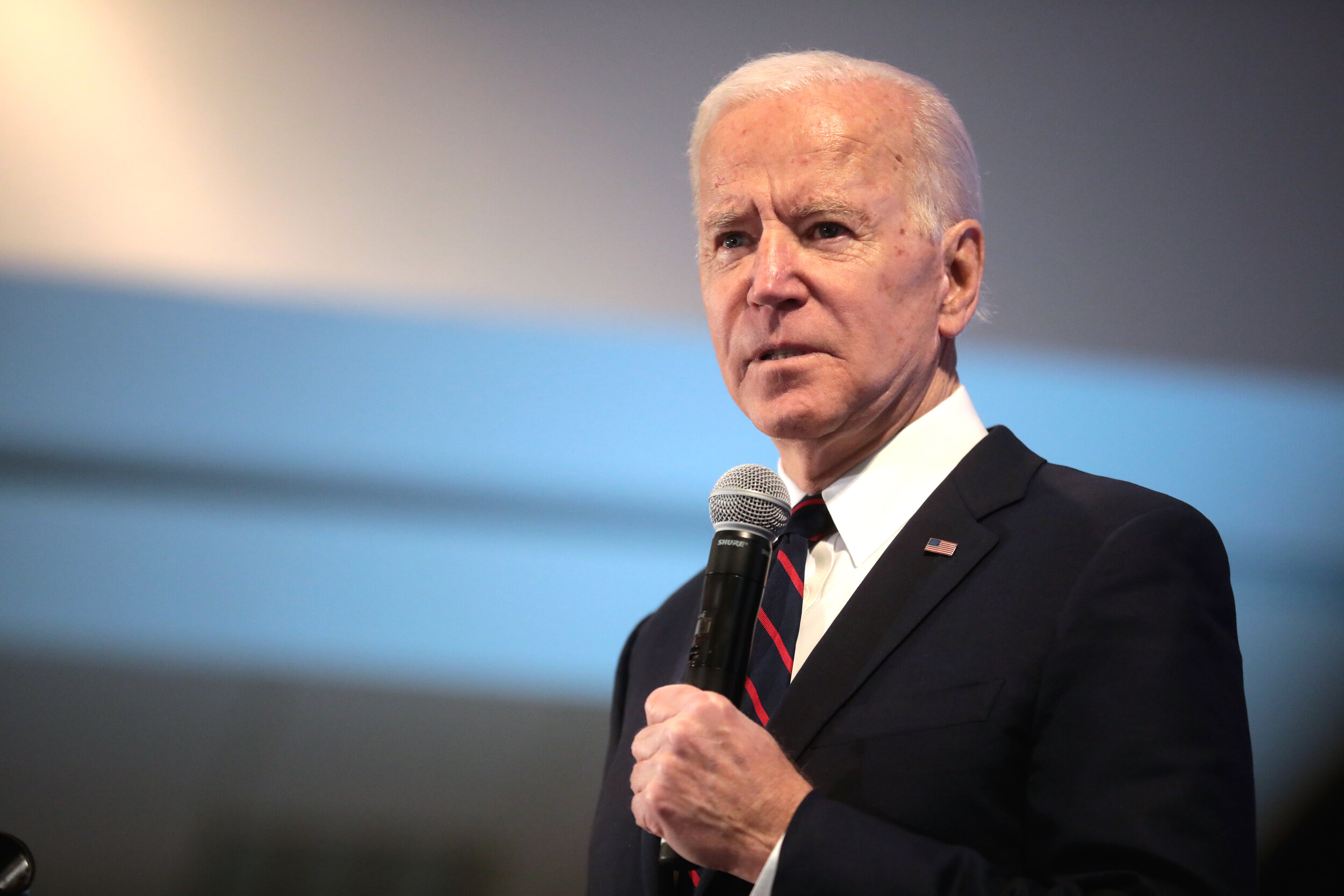President Biden’s First Months in Office: A Recap
Source: "Joe Biden" by Gage Skidmore is licensed under CC BY-SA 2.0
Just around two and a half months ago, Joe Biden delivered his inaugural address on the steps of the US Capitol and assumed leadership of a nation facing numerous challenges. With an ambitious 100-day plan, the new administration has already made headway on a number of key pledges during its first few months in the White House.
Since taking office in late January, addressing the COVID-19 crisis and its economic consequences has been at the top of Biden’s agenda. On its first full day in office, the Biden administration released a thorough 200-page coronavirus response plan, outlining its strategy for mitigating the spread of the virus, reopening schools and launching a comprehensive vaccine distribution campaign.
In a slew of executive orders, Biden instituted a mask mandate on all federal property and public transportation, enacted the Defense Production Act in response to COVID-related supply shortages, and expanded care and treatments for coronavirus, along with numerous other measures. Biden’s $1.9 trillion American Rescue Plan –– a coronavirus relief package that funds vaccinations, provides direct economic relief to citizens, and supports the communities hit hardest by the pandemic –– was signed on March 18. Critics of the aid package said the bill was poorly targeted and largely unrelated to coronavirus, citing some of the provisions as a liberal “wish list”, according to Senate Minority Leader Mitch McConnell.
“This historic legislation is about rebuilding the backbone of this country,” Biden said before signing the relief bill. “And giving people in this nation, working people, middle-class folks, the people who built this country, a fighting chance.”
A recent Marist Poll places Biden’s job approval rating at 52%, with 65% of Americans approving of his handling of the pandemic.
The Biden administration met its first vaccine milestone ahead of their 100-day goal, administering 100 million vaccines in 59 days. In a recent national address, Biden directed states to make all adults eligible to receive a vaccine by May 1, offering a new sense of optimism as the nation recognizes the one-year anniversary of the pandemic. The administration is now working towards a new goal of 200 million shots by the 100th day in office.
Within his first months in the White House, Biden has started tackling the climate crisis by fulfilling campaign promises related to environmental policy. Biden signed an executive order recommitting the U.S. to the Paris Climate Accord on day one in office, one of many of former President Trump’s actions reversed by the Biden White House.
On March 31, Biden unveiled his $2 trillion American Jobs Plan, a key proposal from his campaign that aims to rebuild the nation’s infrastructure. The infrastructure package would allocate funds to repairing and rebuilding highways and bridges, expanding high-speed broadband across the country, improving and building new schools, investing in clean energy, and numerous other areas. Biden is also expected to introduce additional proposals to address education, child care, and other social programs in the coming weeks. While this proposal has already sparked criticism from members of Congress due to its high price tag and proposed tax hikes on corporations, Biden cites this plan as a "once-in-a-generation investment” and seeks to gain bipartisan support for the bill.
Biden also rescinded a key permit for the Keystone XL pipeline via executive order on his inauguration day, an action applauded by environmentalists who object to the construction of the oil pipeline due to its corrosive leaking, contribution to greenhouse-gas emissions, and destruction of indigenous lands. The administration also faced criticism for this executive action, as the order to halt construction on the pipeline eliminated a number of union jobs. Though the exact number of jobs lost as a result of this action is unknown, TC Energy, the company behind the XL pipeline, said Biden’s order “would directly lead to the layoff of thousands of union workers.”
The Biden administration has yet to take consequential action on criminal justice reform within his first two months, aside from an early executive order terminating federal private prison contracts. While Biden pledged during his campaign to establish a police oversight board within his first 100 days, the administration has not taken any clear action to do so thus far.
Biden’s actions on immigration thus far have focused on reversing the policies of the previous administration, including Trump’s infamous Muslim travel ban and the construction of the border wall. Biden introduced a sweeping immigration bill that would provide a path to citizenship for immigrants living in the U.S., strengthen and modernize border security, and provide aid to Central America. After the DACA program –– a program that protects immigrant youth who came to the US as children from deportation –– faced scrutiny and repeated limitations under the Trump administration, Biden put forth a memorandum preserving and fortifying the program.
The administration is currently struggling to contain the recent surge in unaccompanied migrant children coming into the U.S. and has been under fire over a lack of transparency on the border situation. With border crossings on pace to reach the highest levels in 20 years, many House
Republicans feel that Biden’s rollback of immigration policies is to blame for the surge. “The cartels know when to exploit this southern border, and they're doing it now masterfully,” said Rep. John Katko, ranking member of the Homeland Security Committee. “They're doing it because President Biden rolled back a lot of the orders of the previous administration that were working.”
In response to the sudden spike in migrants on the southwest border, the Biden administration has encouraged those seeking to enter the U.S. to refrain from doing so as they are still “in the process of getting set up,” said Biden.
While Biden has already made progress in regards to several of his campaign pledges and main platforms, voters are still awaiting action on some key 100-day agenda promises that remain unfulfilled.
